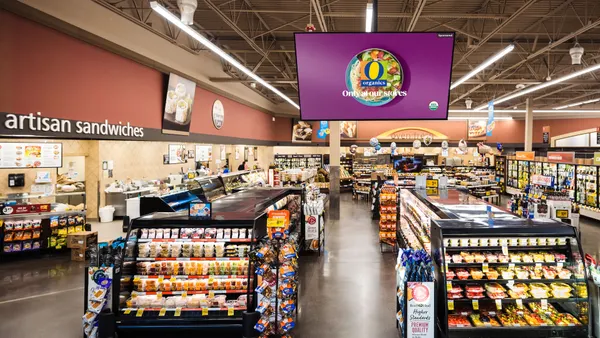Dive Brief:
- Huffington Post is rolling out Facebook pages targeting niche audience segments with the objective of relaying its content to a highly-engaged readership, according to a Huffington Post report. The pages don’t contain obvious Huffington Post branding, although they do communicate their connection to the publication. Huffington Post states they are illustrative of its transition from a content-first to audience-first approach.
- A project of HuffPost Labs, the Facebook pages started with Canceled Plans, which is aimed at millennial and Gen Z female introverts. Canceled Plans exceeded Huffington Post’s three-month goal of 20,000 followers. Canceled Plans has now accumulated 130,000 followers, and Huffington Post divulged it has 737% more people engaged than following.
- Huffington Post has initiated additional niche Facebook pages and currently has seven. The pages include Tomorrow, Inshallah geared toward millennial Muslims, So You Want To Raise A Feminist intended for progressive parents, Queerly Beloved for queer women, and There’s More To The Story for open-minded political junkies. Huffington Post generally begins these Facebook pages by weaving in content from Tumblr and Reddit with permission.
Dive Insight:
In earlier days of the internet, hyperlocal was the rallying cry of the journalism business. Patch amassed a war chest of hundreds of millions of dollars to deliver news to small towns and cities across the country without pricey print editions and reporter-filled newsrooms. Even fashion and beauty websites like Refinery29 and Racked peddled details about local stores and deals, and hometown designers. But the hyperlocal model turned out not to be the revenue producer it promised, Patch stumbled, and websites abandoned local coverage in favor of national stories fueling bigger traffic loads. Hyperlocal was left on life support.
Huffington Post’s experiment cultivating niche communities on Facebook pages suggests that perhaps the hyperlocal model wasn’t wrong on the whole, just directed at the wrong audiences. By building millennial and Gen Z communities around shared personality attributes, political leanings and religions on Facebook, Huffington Post has seemingly entered a gap in the content market where fervent readers are now convening. Discussing the introvert-oriented page Canceled Plans, Kiki Von Glinow, director of growth and analytics, audience development at Huffington Post, wrote, “The community was driven by organic sharing and peer-to-peer recommendations through comments. We got love letters from community members saying this was the first community they’d found that was actually for them.” And Huffington Post's Facebook pages are becoming community gathering spots on the cheap since most of the content is aggregated from existing sites. Huffington Post writers, at least at the outset, apparently aren't paid to generate it.
The pages also could indicate a shift in the rather awkward relationship between publishers and social media. Although publishers rely on social media to grow their audiences and spread news, they can’t seem to figure out how to effectively monetize their social media reach. Instant Articles was Facebook’s attempt at helping publishers make money off their articles being consumed in fast-loading mobile formats, but that attempt has encountered resistance on the part of publishers because it hasn’t been a boon to business, forcing Facebook to make concessions. With its niche pages on social media, Huffington Post is fostering an enthusiastic readership born on social media, so it doesn't have to push readership to new social media platforms. And the online news site might find advertisers are interested in targeting the avid readership flocking to the pages. However, Huffington Post’s Facebook pages are still in their infancy, and it remains to be seen if they will draw advertisers and stick around for the long haul.










